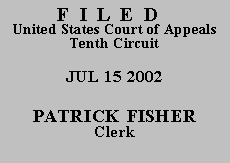

| DEDRIC L. WILEY,
vs.
R.E. HOLT |
|
In August 2001, Mr. Wiley filed a § 2241 petition and an Emergency Petition for Writ of Habeas Corpus seeking redress of his due process right's under the Eight Amendment because the prison staff had shown deliberate indifference as to his safety. R. Doc. 3 at 6. Mr. Wiley attests that he is in danger of physical harm from fellow inmates because he has renounced his former allegiance to the Crips and as a remedy seeks a transfer to another facility. Finding that Mr. Wiley had not asserted a habeas corpus claim, the magistrate judge and the district court directed him to file a Prisoner's Civil Rights Complaint within thirty days. When Mr. Wiley failed to do so, his § 2241 petition was dismissed without prejudice.
A habeas corpus proceeding attacks the fact or duration of a prisoner's confinement and seeks the remedy of immediate release or a shortened period of confinement. In contrast, a civil rights action attacks the conditions of the prisoner's confinement. McIntosh v. United States Parole Comm'n, 115 F.3d 809, 811-12 (10th Cir. 1997). Mr. Wiley's concern for his safety and desire to be transferred was properly identified by the magistrate judge and district court as a civil rights action.
We DENY IFP and DISMISS the appeal.
Entered for the Court
Paul J. Kelly, Jr.
Circuit Judge
*. This order and judgment is not binding precedent, except under the doctrines of law of the case, res judicata, and collateral estoppel. This court generally disfavors the citation of orders and judgments; nevertheless, an order and judgment may be cited under the terms and conditions of 10th Cir. R. 36.3.
**. After examining the briefs and the appellate record, this three-judge panel has determined unanimously that oral argument would not be of material assistance in the determination of this appeal. See Fed. R. App. P. 34(a); 10th Cir. R. 34.1(G). The cause is therefore ordered submitted without oral argument.